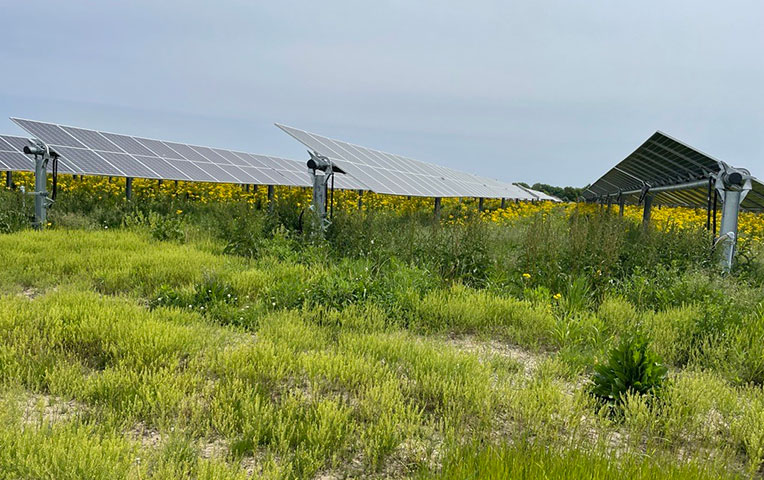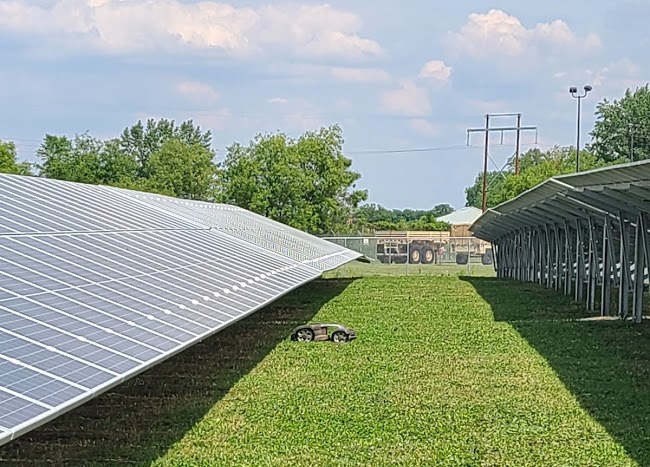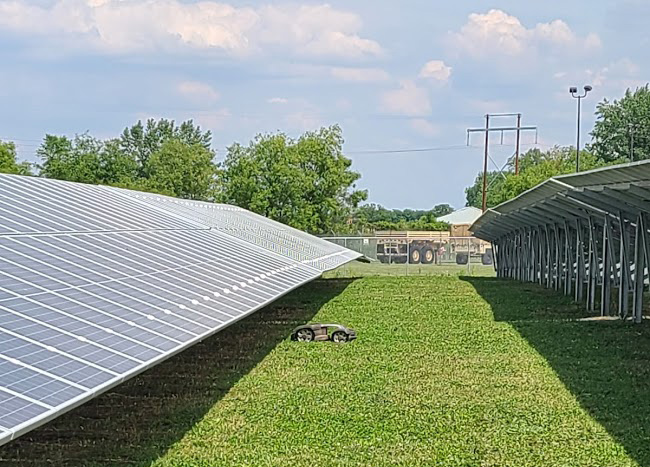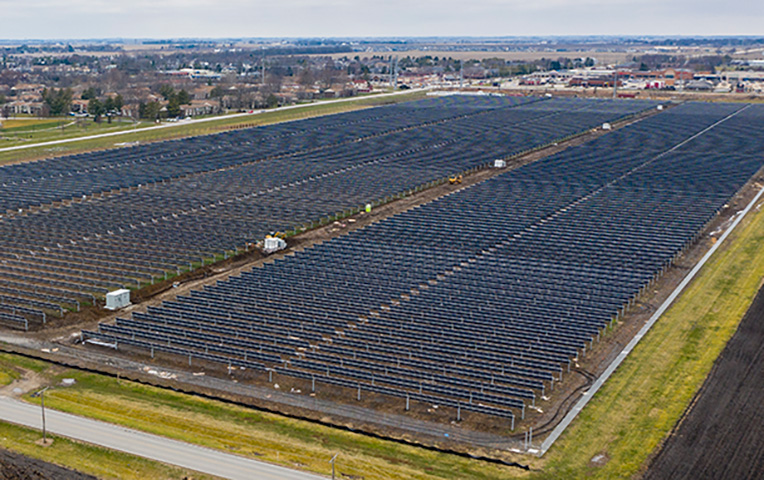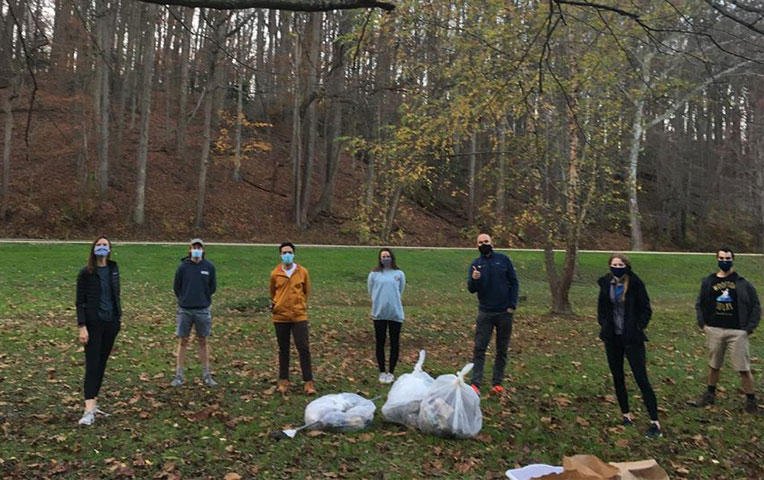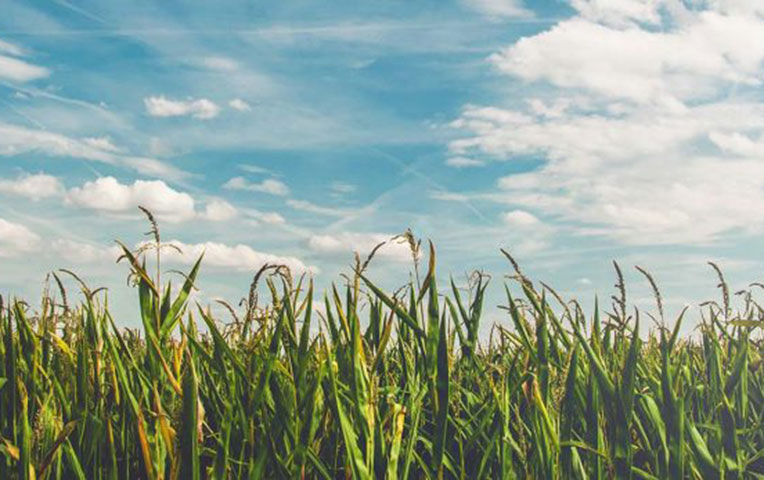Pollinator week has us all a-buzz! This week, we celebrate pollinators and natural habitats and are reminded of how even the smallest creatures can make a huge impact. Populations of pollinators, like bees and butterflies, are on the decline due to land use change and pesticide use, but planting native vegetation helps to rebuild and provide habitat for these threatened species. In addition, pollinator habitats help to stabilize soil, increase carbon sequestration, and help food crops to grow. In fact, it is estimated that one out of three bites of food was made possible by a pollinator species!
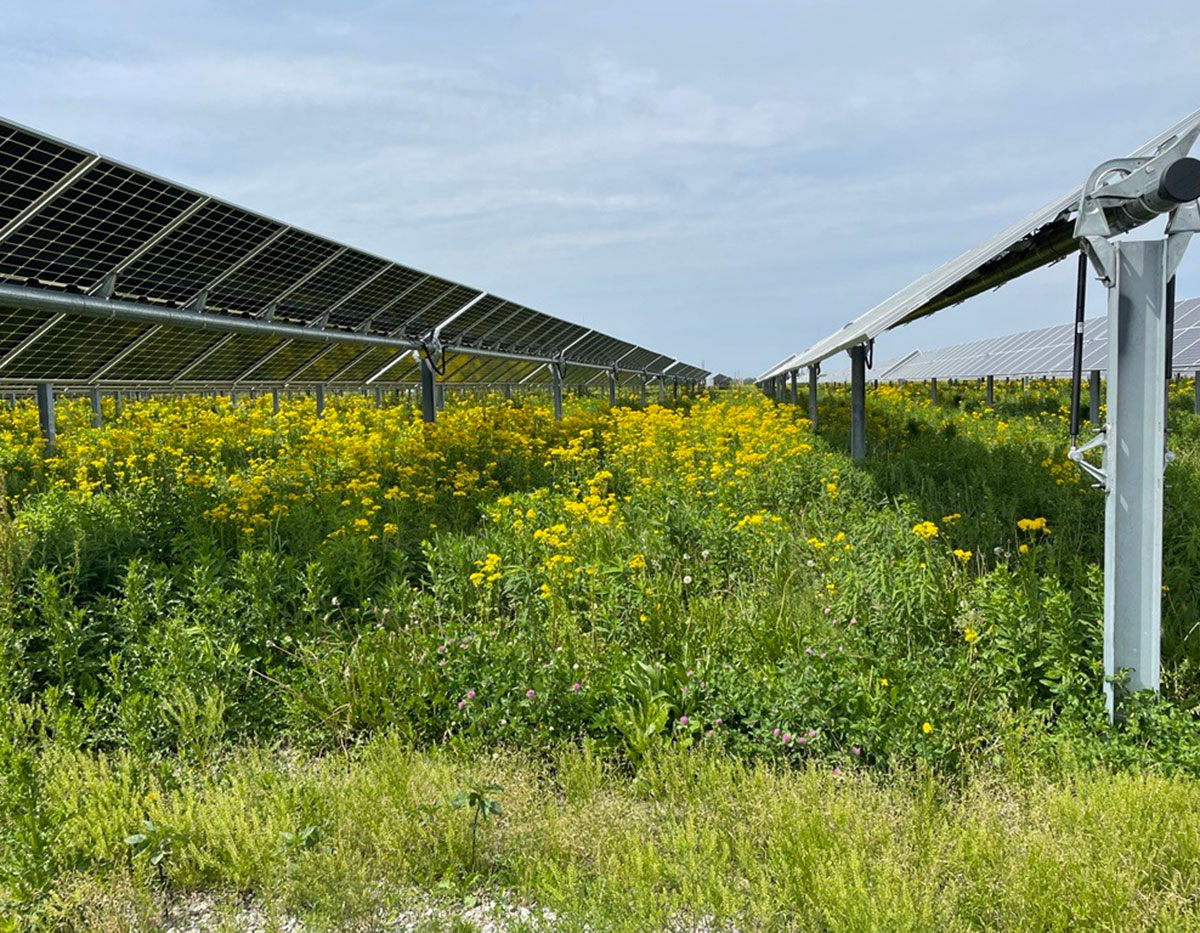
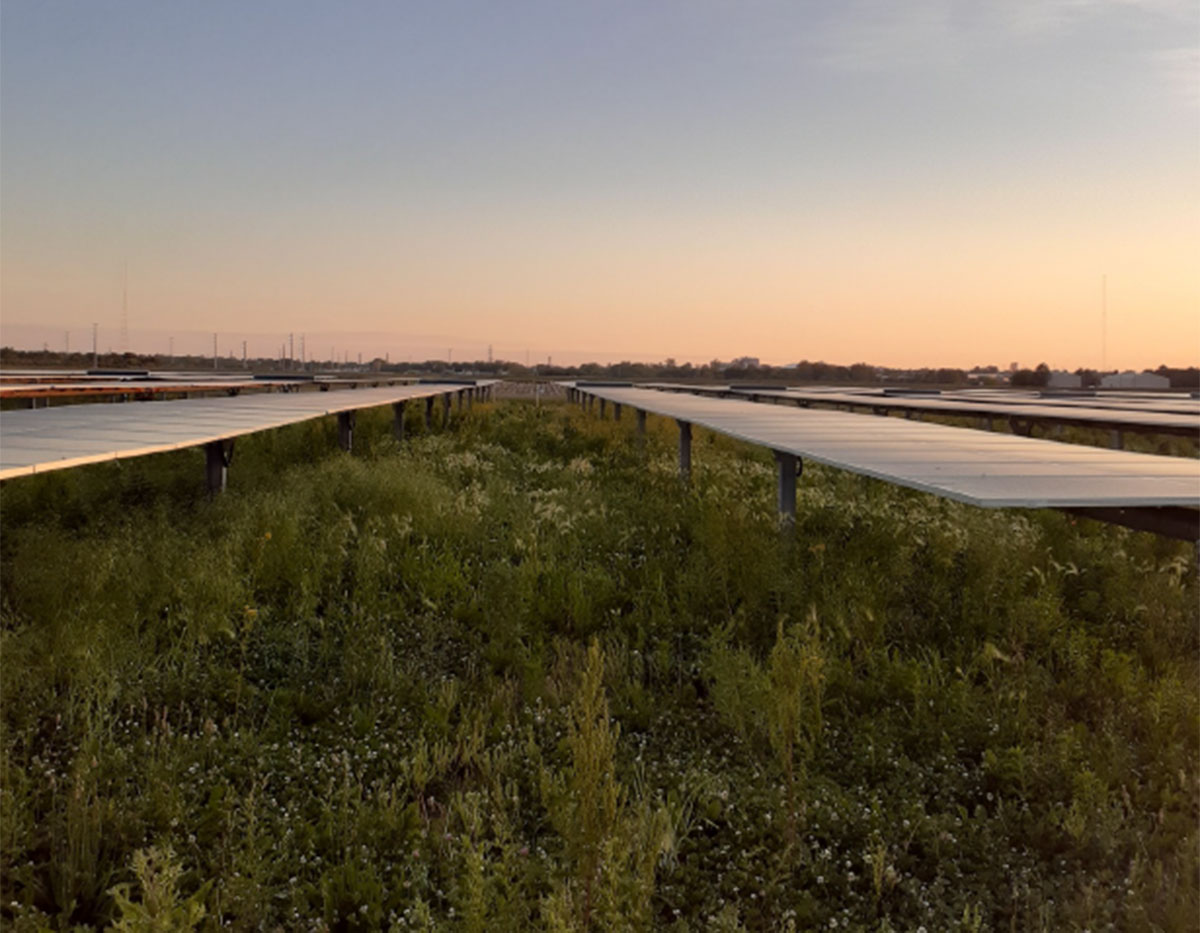
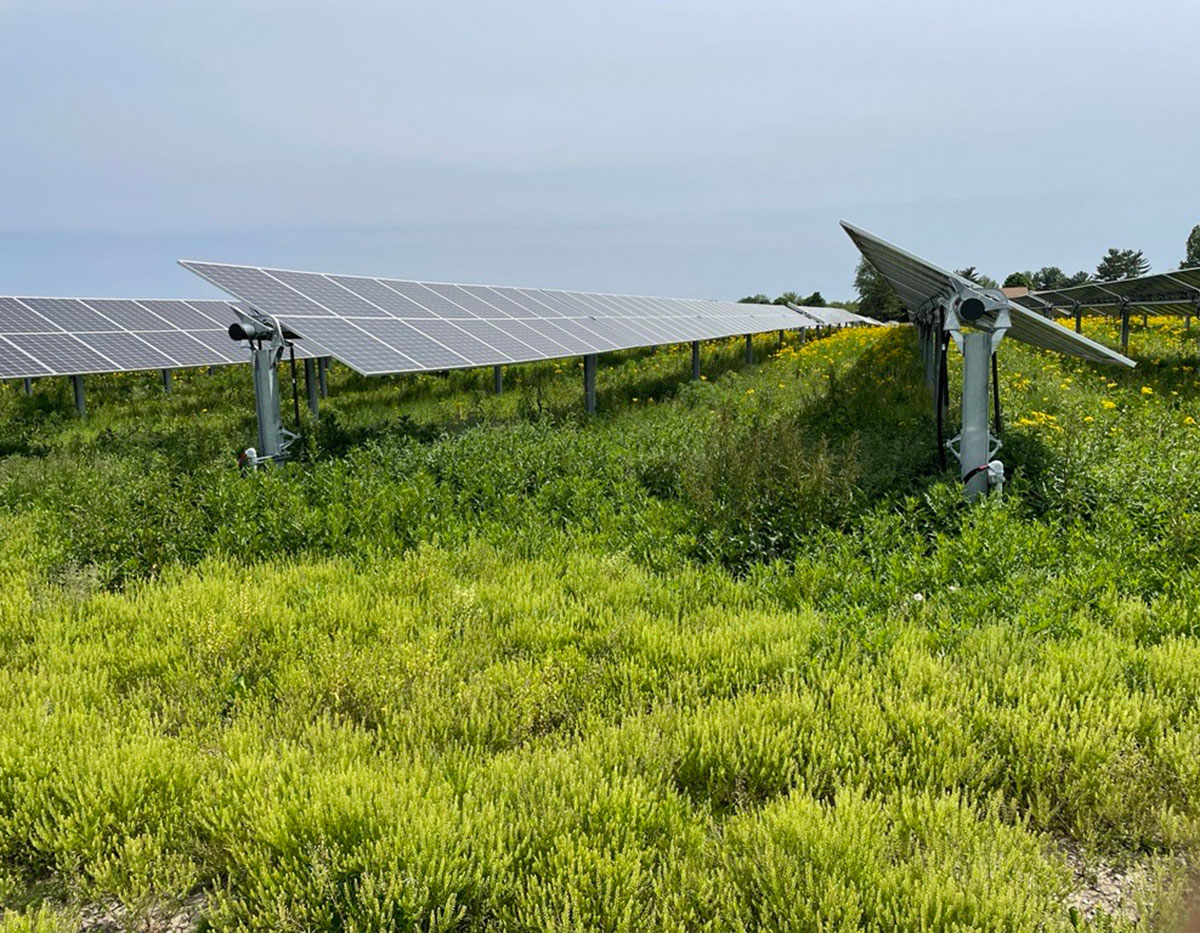
Pollinator gardens are the bee’s knees! The Yale Center for Business and the Environment performed a cost-benefit analysis of pollinator-friendly utility scale solar projects. It was found that the cooler microclimate provided by pollinator-friendly habitats increase the efficiency of co-located solar panels. In addition, Yale found that pollinator habitats can lower operation and maintenance costs from a reduced mowing frequency, increase groundwater recharge rates, decrease soil erosion, and increase crop yields.
The goal of a successful pollinator-friendly solar site is to maintain a healthy stand of native plants, with minimal management. Native vegetation generally has deeper roots, which provides stability to the soil on site and reduces the need for advanced erosion control techniques or stormwater management. Years of management may include one mow and/or one herbicide spot-treatment to manage invasive species. We are not pollen your leg, pollinator-friendly utility scale solar projects are great for bees-ness and the environment!
Sol Systems currently manages two pollinator-friendly sites in Illinois and has several more on the way across the country. Our partnership with Natural Resource Services, who plants and performs vegetation management on our sites, has yielded two healthy native habitats. Even in the first growing season, we’re seeing native flowers pop up and, if you are on-site, you can see the bees and butterflies.

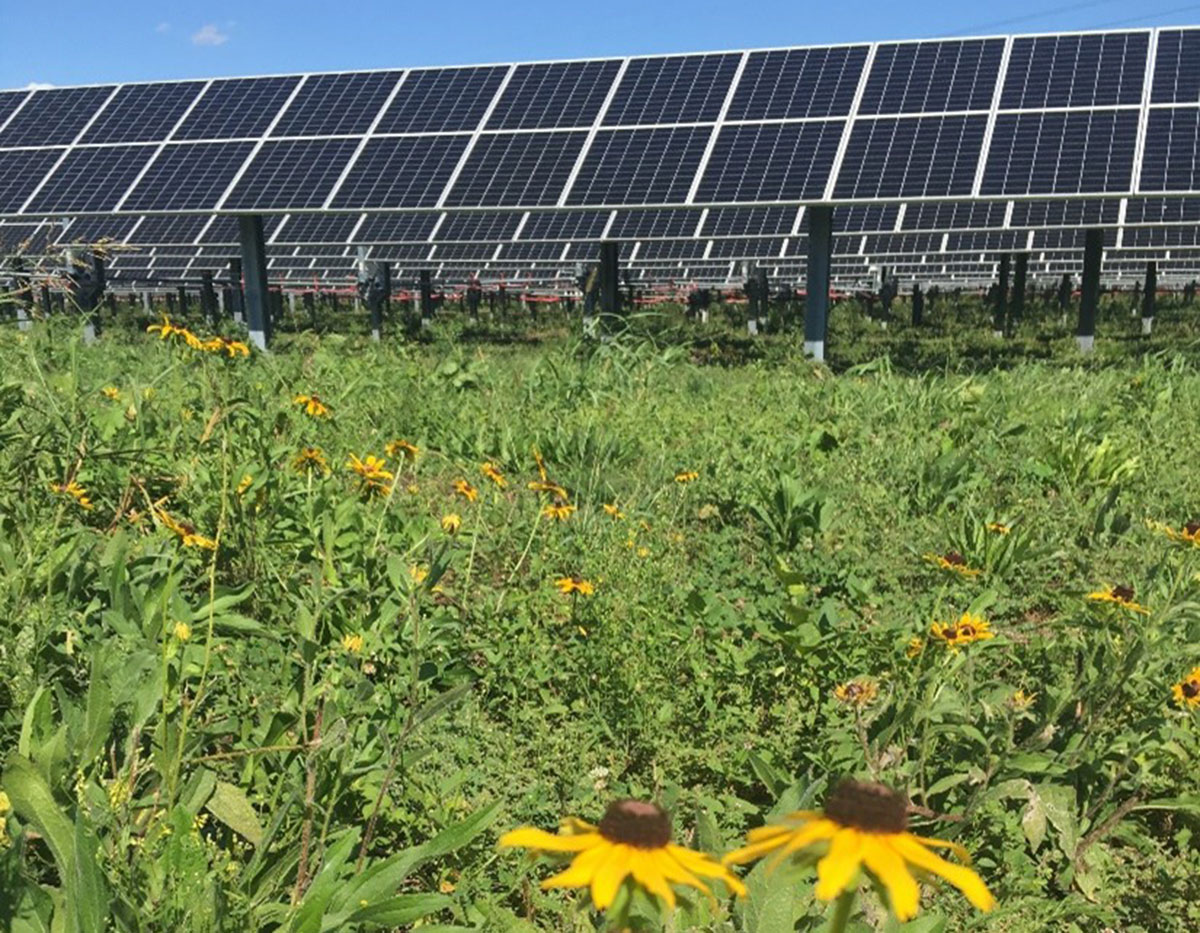
We’re also thrilled to be participating in a research project funded by the Department of Energy’s Solar Energy Technology Office. The research team, consisting of researchers from the University of Illinois Chicago, the University of Illinois Urbana-Champaign, Cardno, the Argonne National Lab, and the National Renewable Energy Laboratory, is evaluating economic, ecological, and energy performance impacts of planting pollinator habitat on large-scale solar sites. Sol Systems is excited to be contributing to this important research, which we hope will make co-locating pollinator habitats at solar sites accessible to a broader swath of the industry.
When the question is to bee or not to bee, Sol Systems knows we have a responsibility to rebuild and protect pollinator habitats and populations and to do our best to support our local ecosystems. We wish everyone a happy pollinator week!



